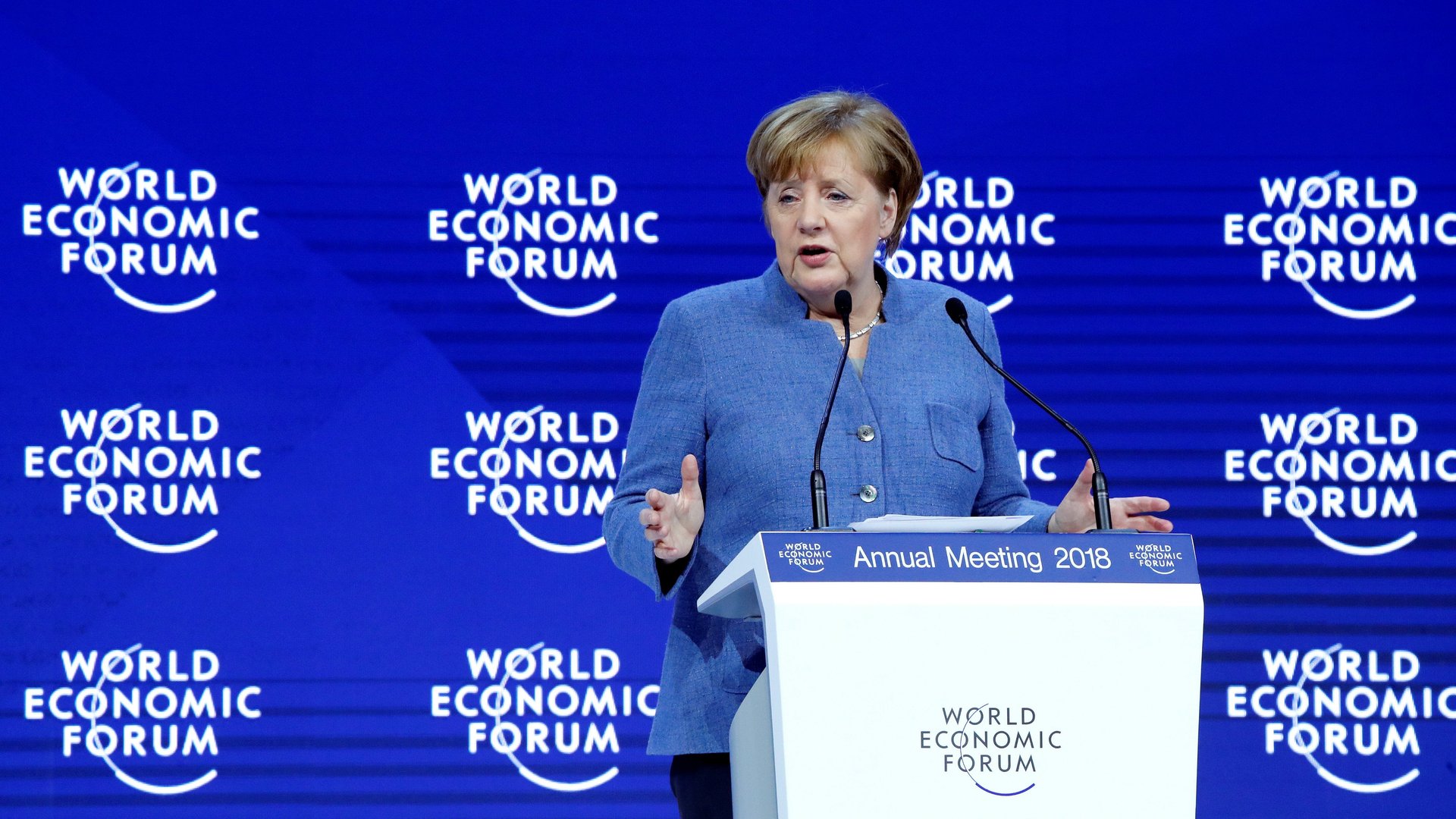Angela Merkel laments the toxic politics caused by Germany’s influx of migrants
Davos, Switzerland


Davos, Switzerland
After a difficult election, German chancellor Angela Merkel has a more sober view of migration and its impact. Speaking at the annual gathering at the World Economic Forum in Davos, she described the political challenges migration to Europe had created.
Merkel is still in the process of securing a coalition to govern four months after the election, or as Merkel described it, “in a special situation.” She paid a political price in September’s election for a 2015 policy to open Germany’s borders and let in some one million refugees over the next year. German voters put a far-right party, the Alternative for Germany (AfD), in parliament for the first time since World War II.
“Polarization is something we see in our country as well, which we haven’t had for decades,” Merkel said. The lingering effects of the euro-zone debt crisis and migration were part of what caused this, she said. Some German voters believe that other European countries were overly benefitting from Germany’s prosperity since Germany partly funded bailouts, Merkel said. Additionally, a “great influx” of migration made some Germans feel something was being taken away from them. When this is combined with unemployment, there is a “a very poisonous mix” that creates social divisions, Merkel said. She didn’t go as far as to say she regretted that Germany welcomed the migrants, despite the toxic politics that followed.
Hitting on the conference’s theme of a “shared future,” Merkel said that many people were worried about whether multilateralism would be able to provide the answers for issues including the impact of digital transformation on society. But like several other leaders speaking at the conference this week she argued strongly against protectionism and isolation, in what seems like a collective message aimed at Donald Trump’s “America First” policy. Populism was a “poison” to be rejected, she said.
Even while extolling the virtues of international cooperation, Merkel warned that Europe couldn’t rely on every other country for everything. Europe recently signed a pact to create a joint defense force in response to America’s step back from the global stage. “The fact that Europe in its foreign policy has not been all that active in the past—we quite often relied as with regards to security on the United States of America, and now they are focusing on themselves and their security—tells us a lesson,” she said. “We need to take more responsibility.”
While Brits in the audience might have been encouraged that they weren’t forgotten, they might not have liked that they heard. Merkel said that it was “regrettable’ that the UK voted to leave the EU but that it has encouraged the region to focus on big important issues. The election of French president Emmanuel Macron had created a “new impetus” that will strengthen the bloc, she said. Macron will take the same stage at Davos later today and Britain’s prime minister Theresa May is speaking tomorrow.
In a wide-ranging speech Merkel also spoke about the need for Germany to stop “lagging behind” in technology and digitalization. She pointed to Estonia as an example of a country far more advanced, with Estonia’s government famously tech-savvy and considering launching a cryptocurrency. Merkel said Europe needed to create a digital single market and that it was under “great pressure” from big American companies that have access to lots of data.
“Data is the raw material of the 21st century,” Merkel sad. “And the question ‘Who owns that data?’ will decide in the end whether democracy, a participatory social model, and economic prosperity can be combined.’’